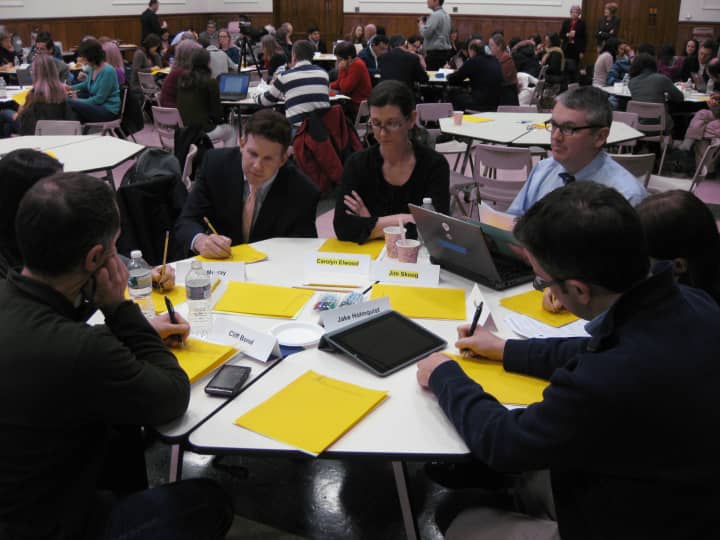Diane Cunningham of Learner Centered Initiatives led a presentation from 7 p.m. to 9 p.m. on Jan. 23 in the Robert E. Bell Middle School auditorium. Cunningham has been helping the school district shape its assessments for the past two years.
“If parents can walk away with one thing tonight, I hope they learn that the word 'assessment' does not equal grading and testing,” she said. “It’s a word that is essential to the learning process.”
Local assessments have been a major topic among faculty and parents alike, as they are part of the district’s new teaching evaluation being piloted this school year.
Assessments account for 20 percent of a teacher’s job review, with standardized state tests (20 percent) and administrative observation and inquiry (60 percent) rounding out the rest.
“We had the option of purchasing an assessment, which some districts have done,” said McKay. “We chose not to go that route, because we wanted to ensure meaningful assessments. It has not been an easy task, but the product looks good. I think it’s going to be extraordinary.”
Cunningham explained the thinking behind the district's decision to create its own assessment, instead of purchasing one provided by the state.
“Tests would have been the easier path,” she said. “The Chappaqua School District made a conscious decision to create more learning, rather than more testing.”
Those in attendance at the Knowledge Café got a first-hand taste of the difference between the two. With faculty facilitators set up among several tables, parents divided up into groups to explore the following three prompts - which emphasized how the district is going about assessing students' learning:
- After Cunningham explained the district’s definition of “assessment”: How is your thinking about assessment similar to and different from the ideas shared?
- After a parent reading exercise: What aspects of performance assessment are emphasized in what we just experienced?
- After a video on what youth ideally need to learn: What connections do you make between this video and what you’ve learned tonight about assessment?
Participants engaged with one another and their facilitators, as they got to pick teachers' - and each other’s - brains.
“I think tonight went very well,” said Roaring Brook Elementary School first-grade teacher Annemarie DeLucia-Piekarski. “It’s always nice for parents to get the chance to interact. Having Diane here tonight was really helpful in explaining the process of where we’re headed as a school district.”
Click here to follow Daily Voice Chappaqua and receive free news updates.




